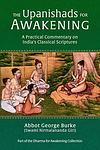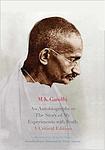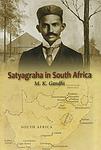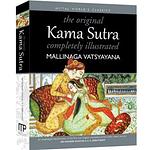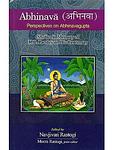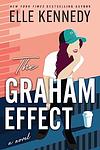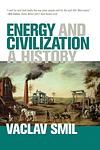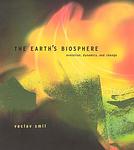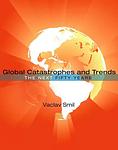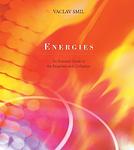The Greatest Czech, Dutch, Indian "Nonfiction" Books of All Time
Click to learn how this list is calculated.
This list represents a comprehensive and trusted collection of the greatest books. Developed through a specialized algorithm, it brings together 305 'best of' book lists to form a definitive guide to the world's most acclaimed books. For those interested in how these books are chosen, additional details can be found on the rankings page.
Genres
Countries
Date Range
Reading Statistics
Click the button below to see how many of these books you've read!
Download
If you're interested in downloading this list as a CSV file for use in a spreadsheet application, you can easily do so by clicking the button below. Please note that to ensure a manageable file size and faster download, the CSV will include details for only the first 500 books.
Download-
1. The Diary of a Young Girl by Anne Frank
This book is a real-life account of a young Jewish girl hiding from the Nazis during World War II, written in diary format. The girl and her family are forced to live in a secret annex in Amsterdam for two years, during which she writes about her experiences, fears, dreams, and the onset of adolescence. The diary provides a poignant and deeply personal insight into the horrors of the Holocaust, making it a powerful testament to the human spirit.
The 60th Greatest Book of All Time -
2. The Praise of Folly by Erasmus
This satirical work is a critique of the practices of the Church and the wider social behavior of the time. Narrated by Folly, the female personification of foolishness, the book humorously criticizes various aspects of society such as superstitious religious practices, scholarly pedantry, and the excesses of the upper classes. The book is a bold critique of its time, using humor and irony to expose the follies of its society.
The 781st Greatest Book of All Time -
3. The Waning of the Middle Ages by Johan Huizinga
"The Waning of the Middle Ages" is a historical analysis of the cultural life of the late Middle Ages, particularly in France and the Low Countries, during the 14th and 15th centuries. It delves into the period's modes of thought, forms of expression, religious beliefs, and social norms. The book argues that the era was characterized by a highly stylized and overwrought civilization, marked by an excessive emphasis on chivalry and courtly love, a religious mindset dominated by the fear of death and the afterlife, and a cultural milieu that was both highly imaginative and deeply pessimistic.
The 915th Greatest Book of All Time -
4. Upanishads by Hindu scripture
The book is a comprehensive compilation of ancient Hindu scriptures known as the Upanishads, which are fundamental to understanding the core philosophies of Hinduism. The text delves into profound spiritual teachings and philosophical dialogues about the nature of reality, the self, and the universe, providing invaluable insights into concepts such as karma, reincarnation, moksha, and the ultimate truth of existence. It serves as a guide to spiritual enlightenment and self-realization, offering timeless wisdom for introspection and personal growth.
The 927th Greatest Book of All Time -
5. Ethics by Baruch de Spinoza
"Ethics" is a philosophical work that explores complex ideas about God, the universe, human emotions, and the path to enlightenment. The book outlines a metaphysical, epistemological, and ethical system in which God and the universe are one and the same, rejecting traditional notions of a personal deity and asserting that understanding the natural world leads to peace of mind and happiness. The work delves into the nature of the human mind and its emotions, advocating for the pursuit of reason and knowledge to achieve a calm, enlightened state.
The 1014th Greatest Book of All Time -
6. The Story Of My Experiments With Truth by Mahatma Gandhi
This book is an autobiography that details the personal journey of a prominent leader who played a key role in India's struggle for independence from British rule. It explores his philosophy of nonviolent resistance and truth, which he refers to as "Satyagraha," and traces his development from a young, unsure boy into a principled activist committed to social justice. The narrative delves into his experiments with diet, celibacy, and other personal challenges, reflecting his quest for self-improvement and moral integrity, which he believed were essential for political leadership and social reform.
The 1687th Greatest Book of All Time -
7. Satyagraha in South Africa by Gandhi
This book is a personal account of the author's experiences during the Indian struggle for civil rights in South Africa. It details the development and implementation of the concept of Satyagraha, or non-violent resistance, as a means of combating social injustice. The book provides a unique insight into the author's philosophies and strategies of peaceful protest, including his belief in the power of truth and the necessity of self-sacrifice in the fight against oppression.
The 1864th Greatest Book of All Time -
8. Bhagavad Gita by Unknown
The book is a 700-verse Hindu scripture that is part of the Indian epic Mahabharata. It takes the form of a dialogue between Prince Arjuna and the god Krishna, who serves as his charioteer. On the battlefield of Kurukshetra, just as the war is about to begin, Arjuna is filled with doubt and moral dilemma about fighting in the battle. Krishna imparts spiritual wisdom and guidance to Arjuna, addressing his concerns and leading him through a profound discourse on various philosophical concepts, including the nature of life, the soul, and one's duties. The text covers topics such as righteousness, devotion, and the paths to spiritual liberation, ultimately encouraging Arjuna to rise to his duty as a warrior with the understanding that the true self is eternal and beyond physical conflict.
The 2018th Greatest Book of All Time -
9. Kama Sutra by Vātsyāyana
This ancient Indian text is a guide to virtuous and gracious living that discusses the nature of love, family life, and other aspects pertaining to pleasure-oriented faculties of human life. It is a comprehensive manual on the art of love and sexual behavior, providing detailed advice on courtship, marriage, and the act of lovemaking. The text, while often associated solely with sexual positions, covers a wide range of topics including the duties and privileges of a wife, advice for courtesans, and methods to attract others.
The 2898th Greatest Book of All Time -
10. Women In The Resistance And In The Holocaust by Vera Laska
This book provides a poignant and comprehensive historical account of the courageous roles played by women during one of history's darkest periods. It delves into the diverse and often overlooked contributions of female fighters, partisans, and activists who stood against the oppressive forces of the Nazi regime during World War II. Through personal narratives, testimonies, and documented events, the book highlights the resilience, bravery, and sacrifices of these women, who not only participated in the resistance movement but also endured the horrors of the Holocaust, offering a vital perspective on their indispensable role in the struggle for freedom and justice.
The 3625th Greatest Book of All Time -
11. The Letters Of Vincent Van Gogh by Vincent van Gogh
"The Letters of Vincent van Gogh" is a compilation of correspondence that provides a deep and personal insight into the mind of one of the world's most famous and influential painters. Through these letters, primarily written to his brother Theo, the reader gains an intimate understanding of Van Gogh's thoughts on art, his emotional struggles, his aspirations, and the profound relationships he maintained throughout his turbulent life. The collection not only sheds light on his creative process but also reveals his reflections on existence, his financial difficulties, and his relentless pursuit of his artistic vision, offering a poignant look at his world from his own perspective.
The 3669th Greatest Book of All Time -
12. My Story by Kamala Das
"My Story" is an intimate memoir that delves into the life of a woman navigating the complexities of her existence in mid-20th century India. It candidly explores themes of love, marriage, and womanhood, as the author recounts her journey from a young girl to a renowned poet and writer. The narrative is marked by its honesty and emotional depth, addressing the author's unconventional choices and her search for personal freedom amidst the constraints of a traditional society. Her reflections on sexuality, fidelity, and the literary world offer a poignant look at the challenges faced by women in asserting their identity and creativity.
The 3695th Greatest Book of All Time -
13. Homo Ludens: A Study of the Play-Element in Culture by Johan Huizinga
"Homo Ludens: A Study of the Play-Element in Culture" is a comprehensive exploration of the significance of play in human culture. The author argues that play is not just a childhood activity but a crucial component of societal development and cultural evolution. He delves into various aspects of culture such as law, war, knowledge, poetry, and philosophy, demonstrating how each has been influenced by elements of play. The author's thesis is that understanding the role of play in our culture is essential to understanding human nature itself.
The 3791st Greatest Book of All Time -
14. Resources, Values And Development by Amartya Sen
"Resources, Values, and Development" is a comprehensive examination of the interplay between the availability of resources, the values that guide their use, and the resulting impact on development. The book challenges traditional economic measures of development, such as GDP, and argues for a broader understanding that incorporates human welfare and freedom. It delves into the role of ethics in economics, the importance of individual capabilities, and the need for equity in the distribution of resources. The author's influential ideas on development economics and social choice theory are presented, advocating for a more humane and inclusive approach to economic development that prioritizes the enhancement of human lives over mere economic growth.
The 4367th Greatest Book of All Time -
15. Living In Truth by Vaclav Havel
"Living in Truth" is a collection of essays and speeches that delve into the moral and existential struggles of living under an oppressive regime. The work explores the nature of power, truth, and individual responsibility in a society where the official narrative often contradicts reality. The author, a dissident playwright turned political leader, argues for the importance of living with integrity and maintaining a commitment to truth as acts of resistance. Through personal anecdotes and philosophical reflections, the text serves as both a critique of totalitarianism and a guide for maintaining one's humanity in the face of systemic deception and coercion.
The 4533rd Greatest Book of All Time -
16. Abhinavagupta by Abhinavagupta
This book delves into the life and teachings of Abhinavagupta, a seminal figure in Indian philosophy and aesthetics. A scholar from the 10th century Kashmir, Abhinavagupta made significant contributions to the fields of philosophy, mysticism, and the arts. The text explores his works and thoughts within the framework of the non-dual Shaivism of Kashmir, highlighting his theories on aesthetics, particularly the concept of rasa in drama and literature. It provides a comprehensive analysis of his philosophical system, which integrates elements of Tantra, Krama, and Trika philosophies, offering insights into his profound understanding of human consciousness and the divine.
The 4688th Greatest Book of All Time -
17. Development As Freedom by Amartya Sen
The book in question is a seminal work in the field of economics and development studies, which argues that true development is best understood as the process of expanding the real freedoms that people enjoy. It challenges traditional indicators of growth, such as GDP, suggesting that they fail to capture the essence of human well-being. Instead, it posits that development should be assessed by the range of choices available to individuals, including access to education, healthcare, and the ability to participate in the economic and political life of society. The author emphasizes the interdependence of various types of freedoms, from political rights to economic opportunities, and the role they play in empowering people to live the lives they value.
The 5517th Greatest Book of All Time -
18. Infidel by Ayaan Hirsi Ali
The book is a powerful memoir of a woman who was born into a traditional Muslim family in Somalia. She recounts her experiences of growing up in a strict Islamic culture, female genital mutilation, civil war, fleeing to the Netherlands as a refugee, and her eventual rejection of her faith after witnessing its violent and oppressive nature. The book also follows her journey into politics and advocacy for women's rights and her efforts to reform Islam. It's a tale of courage, resilience, and the quest for freedom and truth.
The 5724th Greatest Book of All Time -
19. The Diaries by Franz Kafka
The book in question is a collection of personal writings by a prominent 20th-century author, chronicling his complex inner life over a period of several years. These diaries offer a window into the writer's introspective and often troubled mind, revealing his struggles with self-doubt, existential angst, and the creative process. The entries range from mundane daily events to profound philosophical reflections, providing insight into the author's relationships, his Jewish identity, and the socio-political context of his time. The diaries are a key source for understanding the author's enigmatic works, as they illuminate the thoughts and experiences that shaped his unique literary voice.
The 7168th Greatest Book of All Time -
20. Energy by Vaclav Smil
This book provides a comprehensive exploration of energy in its various forms, tracing its role throughout human history. The author delves into the science of energy, from the muscle power of prehistoric humans to the modern era's reliance on fossil fuels and the potential of renewable sources. With a focus on the environmental and societal impacts of energy consumption, the narrative emphasizes the importance of sustainable energy practices. Through a blend of historical context, scientific analysis, and a look at current energy challenges, the book offers a deep understanding of the essential role energy plays in shaping civilizations and the urgent need for a more efficient and environmentally friendly approach to energy use.
The 8067th Greatest Book of All Time -
21. The Earth's Biosphere by Vaclav Smil
This book provides a comprehensive overview of the Earth's biosphere, exploring the complexity and resilience of life on our planet. It delves into the intricate relationships between the biosphere's various components, including ecosystems, organisms, and the physical environment, while also examining the impact of human activities on these natural systems. The author synthesizes a vast array of scientific knowledge to present a detailed yet accessible understanding of how the biosphere functions, its evolutionary history, and the critical challenges it faces in the modern era. Through this exploration, the book highlights the importance of sustainable practices to preserve the delicate balance of life on Earth for future generations.
The 8339th Greatest Book of All Time -
22. Creating The Twentieth Century by Vaclav Smil
This book provides a comprehensive analysis of the technical innovations and scientific discoveries that fundamentally transformed the 20th century, laying the groundwork for modern society. It delves into the period from 1867 to 1914, which the author identifies as crucial years when core technologies such as electricity, the internal combustion engine, and basic chemical processes were developed. These innovations, the book argues, set the stage for the unprecedented economic growth and improvement in human well-being that characterized the 20th century. Through a detailed examination of the interplay between technological advancement and societal change, the narrative explores how these foundational developments have shaped the contemporary world, highlighting both the positive outcomes and the challenges they have brought.
The 8560th Greatest Book of All Time -
23. Global Catastrophes And Trends by Vaclav Smil
This book provides a comprehensive analysis of the major natural and human-induced disasters and trends that have the potential to significantly alter the course of human civilization. It delves into a wide array of topics, from environmental degradation and climate change to the risks of nuclear warfare and pandemics, offering a detailed examination of their causes, impacts, and the likelihood of their occurrence. The author meticulously assesses the probability and severity of these global challenges, combining scientific research with historical context to evaluate how they might shape the future. Through a blend of rigorous analysis and insightful commentary, the book aims to enhance our understanding of the complex dynamics that govern our world and the potential pathways to mitigate these global risks.
The 9042nd Greatest Book of All Time -
24. Energies by Vaclav Smil
This book provides a comprehensive exploration of the various forms of energy that power the planet, from traditional fossil fuels to renewable sources like wind and solar power. The author delves into the scientific principles underlying energy conversion, storage, and transmission, offering insights into the complexities of energy systems and their impacts on the environment and society. Through a detailed analysis, the book presents a balanced view on the challenges and opportunities of transitioning to a more sustainable energy future, emphasizing the need for informed policy decisions and technological innovations.
The 9042nd Greatest Book of All Time -
25. Energy Transitions by Vaclav Smil
This book provides a comprehensive analysis of the historical shifts in energy sources and consumption patterns, from traditional biomass to fossil fuels and the potential future transition to renewable energy sources. It examines the technological, economic, and environmental challenges associated with these energy transitions, emphasizing the complexity and duration of these shifts. The author argues that while transitions to more efficient and less environmentally damaging energy sources are necessary, they will be gradual and require significant technological innovations and societal adaptations. Through a detailed exploration of past and present energy systems, the book offers insights into the future of global energy consumption and the path towards a more sustainable energy landscape.
The 9206th Greatest Book of All Time
Reading Statistics
Click the button below to see how many of these books you've read!
Download
If you're interested in downloading this list as a CSV file for use in a spreadsheet application, you can easily do so by clicking the button below. Please note that to ensure a manageable file size and faster download, the CSV will include details for only the first 500 books.
Download


